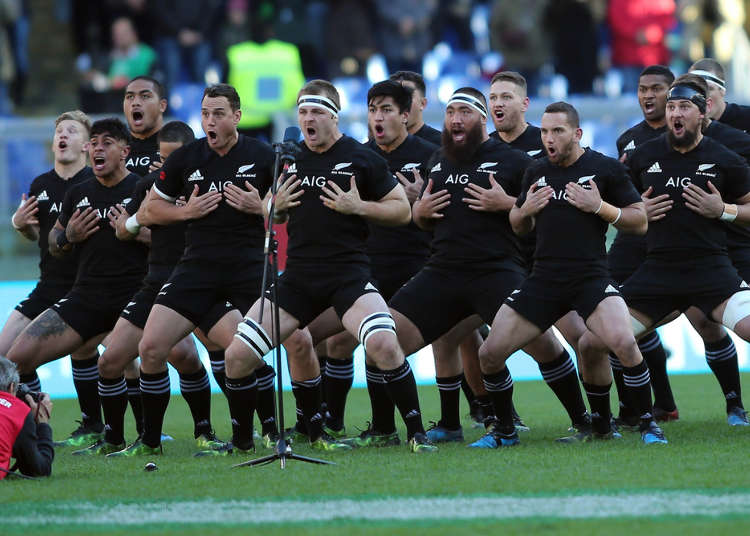
Enhance Your Rugby Viewing Experience with These Fascinating Japan Rugby Union Facts
- Written by: Medium Inc.
Japan hosted the prestigious Rugby World Cup back in 2019, marking a milestone in the nation's rugby history. Since the Japan national team's sensational victory over rugby union powerhouse South Africa during the 2015 tournament, interest in the sport has surged, drawing more spectators to domestic league matches. However, we understand that some of you might still be newcomers to the thrilling world of live rugby.
That's why this article, penned by a dedicated rugby enthusiast who has attended numerous matches, is here to share some intriguing facts that will make your first rugby experience even more captivating! From the iconic New Zealand haka to behind-the-scenes glimpses of how players unwind after matches, these tidbits will not only enhance your viewing pleasure but also deepen your appreciation for the sport.
Rugby, the Gentleman's Sport
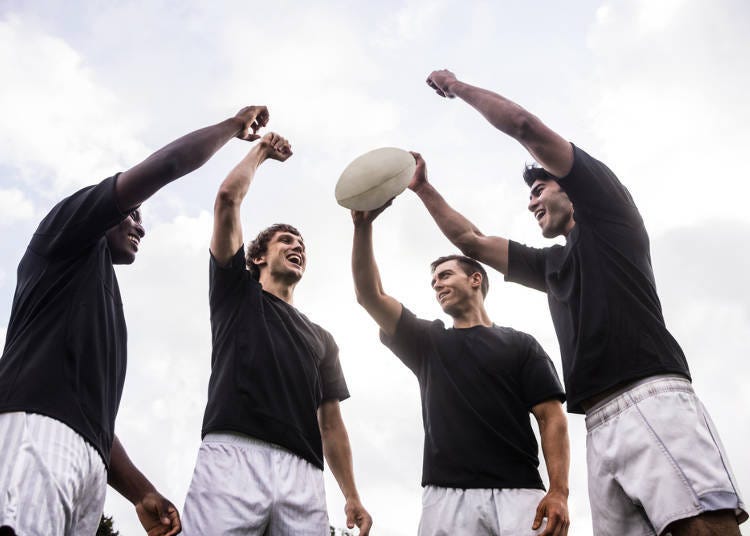
It may come as a surprise considering how rough the sport appears, with players charging into each other with full force, but rugby is also known as the "gentleman's sport." Originating in Britain in the 19th century, rugby was popularized by prestigious universities such as Cambridge and Oxford. This gentlemanly tradition is even depicted in pop culture; for instance, in the manga "JoJo's Bizarre Adventure," there's a scene where Jonathan Joestar, a British character raised in a noble family, plays rugby with another character, Dio, during their youth.
The truth is, this gentlemanly tradition is reflected in how rugby rules and etiquette are shaped. Despite the physicality of the game, respect for opponents, officials, and the spirit of fair play are core values that define the sport. This sense of sportsmanship can be seen in acts such as players helping their opponents up after a tackle and the customary handshake after the match. Understanding this aspect of rugby will help you appreciate the game not just as a contest of physical prowess but also as a demonstration of respect and camaraderie.
Symbolic of a Gentleman's Sport: The Rugby Playing Charter
There is a Rugby Playing Charter that governs the etiquettes of the game. It contains the ethos shared by rugby players and fans all over the world.
The pillars of the Rugby Playing Charter are the core values of integrity, passion, solidarity, discipline and respect. Among these five, integrity is especially defined as being "central to the fabric of the game and is generated through honesty and fair play". There is no preferential order for the five values, but a sport that has "integrity" as one of its core values certainly reflects its gentlemanly origins, doesn't it?
Rugby's "No-Sides Spirit"
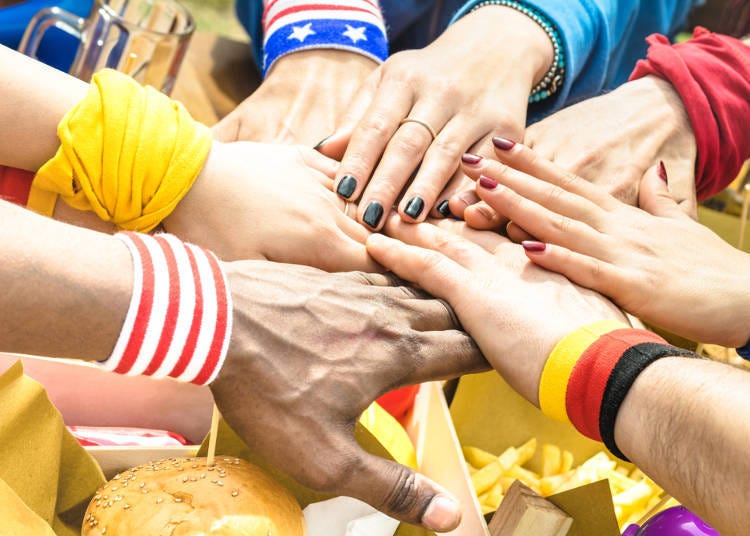
The common theme that runs through the Rugby Charter's core values is a "no-sides" or "full-time" spirit. What it means is that when the ending whistle is blown after full-time is reached, there are no sides - allies or enemies - outside the playing field. In the stadium, both teams share the same shower rooms, spectators aren't segregated based on the team they support, and other little things like those embody the kind of no-sides spirit the sport is trying to encourage.
After-Match Functions
The most apparent expression of rugby's no-sides spirit would have to be the after-match functions. As its name suggests, this is an event after the match where players from both teams along with related personnel and match referees gather together for interaction. Though they were fierce rivals just a few moments ago, everyone comes together for a hearty meal and to praise each other's performances on the field.
Fans Have Adopted the No-Sides Spirit Too!

The no-sides spirit is an important value among fans as well. When the opposing team plays well, they are applauded, and jeering of any sort is looked down on. When a goal or conversion kick is being attempted, audiences remain as quiet as possible in order to allow players to have full concentration.
When people think of fervent fans, the hooliganism of soccer crowds often come to mind. Fans of two opposing teams meet on the streets, tempers fly, and things blow up in a split second...right? But supporters of both teams having a good time together shoulder-to-shoulder with a beer or two in a sports bar post-match is the more common sight for rugby. Looks like the fans have found a way to have their own after-match functions too, eh?
Why Isn't the Head Coach on the Bench?
In rugby union, the head coach is in charge of the entire team. The current Japan national team's head coach is New Zealander Jamie Joseph. If you've ever caught video clips of rugby matches on TV, you've probably wondered: Why isn't the rugby head coach on the bench giving instructions?
It's actually an unspoken rule in rugby that instructions during matches are the responsibility of the captain, and no one outside the playing field should be offering advice. That's not to say the head coach is just a passive observer during the match, of course. He'll be using a transceiver to give instructions to other coaches from the spectator stand.
Strong Rugby National Teams with Distinct Personalities
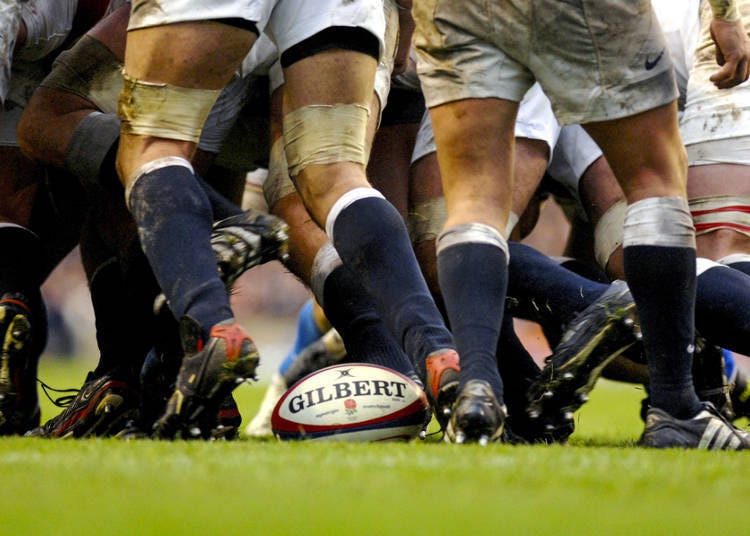
In April 2019, the top 10 teams for rugby were, in descending order: New Zealand in first place, followed by Wales, Ireland, England, South Africa, Australia, Scotland, France, Fiji, Argentina, and then Japan in 11th place.
Many of these countries have distinctive traditional characteristics.
National Team Nicknames
The teams mentioned above all have their own nicknames that reflect their national identity. For example, Japan's national team is nicknamed Brave Blossoms after sakura, or cherry blossoms. Here are some of the more well-known nicknames of other teams.
・New Zealand: All Blacks
・Wales: Red Dragons
・England: Red Roses
・South Africa: Springboks
・Australia: Wallabies
・France: Les Bleus
・Fiji: Flying Fijians
・Argentina: Los Pumas
・Russia: Bears
・Samoa: Manu Samoa
The New Zealand team's nickname is widely known in Japan as well. When they visit Japan, sports papers will often use the "All Blacks" moniker in their headlines.
War Cry: A Dance to Boost Morale
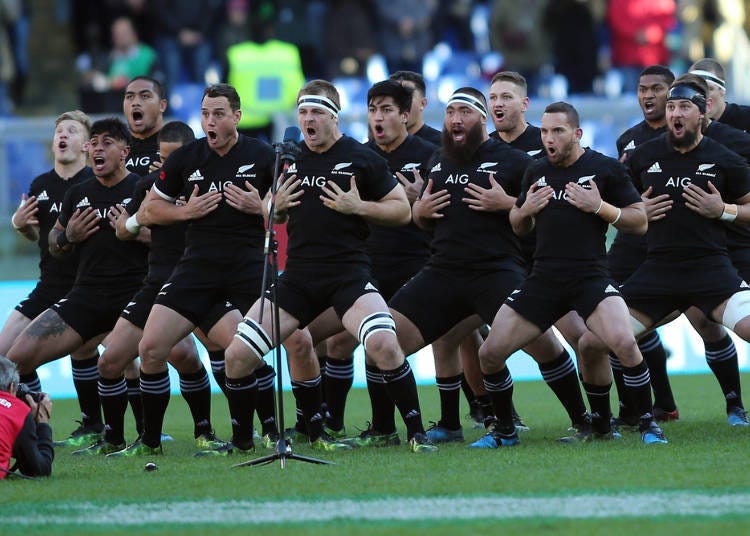
Splendid skills aren't the only things fans find mesmerizing about rugby union world number one New Zealand. The Haka dance that they perform before each match is quite something too!
Haka is a traditional challenge dance of the Maori, the indigenous people of New Zealand. It was performed before tribal battles to bolster morale. Heavy feet stomping and loud cries of phrases such as "Ka Mate (I may die)" and "Ka Ora (I may live)" leave lasting impressions on those who witness such displays. When performed in front of an opponent's team, it adds to the tension of the match that is about to begin.
Dances like Haka are called "war cries", and other national teams such as Fiji (Cibi), Tonga (Sipi Tau), and Samoa (Siva Tau) have their own dances as well.
Swing Low: The Anthem of England's National Team
England's rugby anthem "Swing Low" is also well-known among rugby fans. The original title of the song is "Swing Low, Sweet Chariot", and this song was popular among the blacks in the United States during the 19th century. There are many theories about how the song came to become the anthem of England's national rugby team, but regardless of the reason, the fact is that when everyone starts singing the song in unison during the team's matches, it raises the players' spirits and boosts their morales by leaps and bounds.
What to Bring and Wear for Your First Match?

The Rugby World Cup 2019 will be held in Japan from September to November this year. If you arrive about an hour before the match begins, you'll be spending about three hours in the stadium, including match time. Rugby games take place outdoors. Some stadiums have roofs, but just in case, be sure to bring something for unexpected rain and cold weather.
Specifically, items like a raincoat, windproof jacket, muffler, and a pair of gloves will be helpful. Your knees can get rather cold if you're sitting all the time, so we also recommend bringing along a flannel blanket to deal with that, especially for the ladies!
Bringing along a foldable floor pillow or cushion will help you last longer on the hard and utilitarian stadium seats. Since rugby is a sport where players often gather together at one particular spot, a pair of opera glasses or theater binoculars will ensure that you always have an eye on the action.
It may be a good idea to keep a minimal amount of biscuits or nutritional supplements on hand as well, and definitely don't forget to bring enough drinking water!
Main image(c)Marco Iacobucci EPP / Shutterstock.com
A full-service editorial production team that handles everything from planning, editing, coverage, and writing, for all types of media, including booklets, books, websites, and events, plus everything from media launch, to stuffing and delivery.
- Area
- Category
*Prices and options mentioned are subject to change.
*Unless stated otherwise, all prices include tax.
Popular Tours & Activitiess
Recommended places for you
-

Ueno Zoo (Ueno Zoological Gardens)
Zoos, Aquariums & Botanical Gardens
Ueno
-
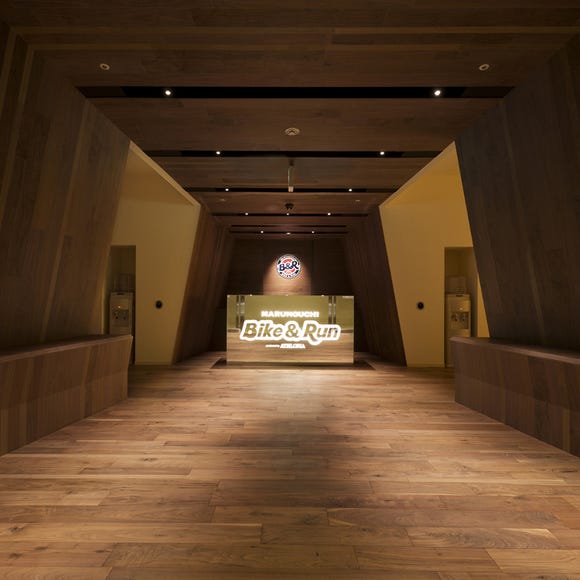
MARUNOUCHI Bike&Run
Other Sports
Tokyo Station
-

The Tokyo Station Marunouchi Building
Landmarks
Tokyo Station
-

Shibuya Crossing
Downtown
Shibuya
-

Raffine Running Style Otemachi One
Other Sports
Tokyo Station
-

Raffine Running Style Neo
Other Sports
Ginza
-
Ad

[Tokyo, Ueno] Journey to the Sacred Grounds of the Tokugawa Shoguns: Join the "EDO SHOGUN’S LEGACY TRAIL TOUR" – Where Special Access, Modern Art, and Digital Innovation Converge
by: Guest Contributor
-

Only in Tokyo? A Legendary Manga Artist's New Masterpiece Is Hiding Underground
by: Guest Contributor
-

New in Ginza! Air BicCamera Ginza Opens with a Faster, More Convenient Shopping Experience
by: Guest Contributor
-

Jujutsu Kaisen Takes Over JR East With a Wrapped Shinkansen This Winter
by: Guest Contributor
-

Make Your Japan Trip Unforgettable! Explore "OSHI MAP" – Now Free and Unlimited
by: Guest Contributor
-
Ad

Discover the "Miraculous Forest" in the Heart of Tokyo: The Institute for Nature Study (9 Minutes from JR Meguro Station)
Inspiration for Accommodations
-

Enjoy Mt. Fuji from the Comfort of Your Room! Recommended Ryokan with Mt. Fuji View
-

Stay Near the Cherry Blossoms! Hotels for Cherry Blossom Viewing in Tokyo
-

Family-Friendly Hotels with Free Shuttle to Disneyland: Convenient Access for a Magical Stay
-

Top Ranked Hakone Hotels with Mt. Fuji View: Enjoy Stunning Scenery from Your Private Space
-

Convenient Tokyo Hotels with Airport Shuttle: Ideal for Families and Heavy Luggage
-

Stunning Tokyo Tower View Hotels: Enjoy Spectacular Scenery from Your Private Space
-

Convenient Asakusa Hotels with Kitchens: Ideal for Extended Family Visits
-

Experience Luxury: Hakone's 10 Best Five-Star Accommodations
-

Enjoy Mt. Fuji Autumn Leaves! Top Hotels Near the Popular Autumn Leaves Corridor
-

Experience Hakone Fall Foliage from Your Room with Stunning Views
-

Tokyo Tsukiji|Tsukiji Area Map & Sightseeing Information
-

Ultimate Tokyo Transit Guide: JR, Subways, and Private Railways Explained, Plus Suica/PASMO and Money-Saving Passes
-

Guide to Japanese Union Rugby for Beginners
by: Medium Inc.
-

Tokyo Gearing Up For 2019 Rugby World Cup and 2020 Olympics
-
Ad

Take Me Out to the Ball Game – Japanese Style! Catching a Baseball Game During Your Tokyo Visit
-

Tokyo Roppongi|Roppongi Station Area Map & Sightseeing Information
- #best ramen tokyo
- #what to buy in ameyoko
- #what to bring to japan
- #new years in tokyo
- #best izakaya shinjuku
- #things to do tokyo
- #japanese nail trends
- #what to do in odaiba
- #onsen tattoo friendly tokyo
- #daiso
- #best sushi ginza
- #japanese convenience store snacks
- #best yakiniku shibuya
- #japanese fashion culture
- #best japanese soft drinks













